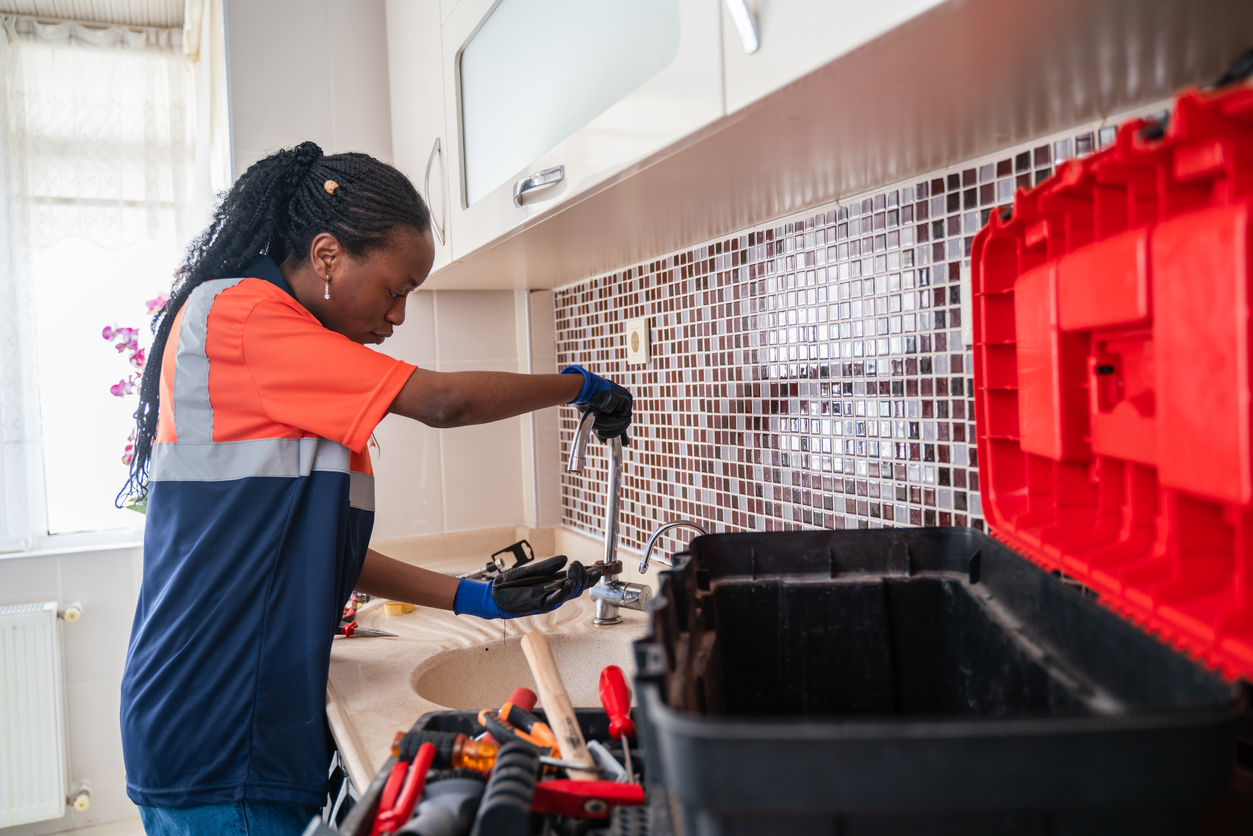Bathroom Plumbing Essentials: Guidance for New Homeowner Needs to Know
Bathroom Plumbing Essentials: Guidance for New Homeowner Needs to Know
Blog Article
What are your thoughts and feelings on 6 Essential Plumbing Checks for New Homeowners?

For new property owners, understanding and maintaining bathroom plumbing can save both money and time by stopping pricey problems down the line. Here are some essential shower room plumbing tips to assist you maintain every little thing running smoothly.
Plan For Winter
Protect your pipelines from cold throughout cold weather by protecting pipelines in unheated locations like cellars, attic rooms, and garages. During extreme chilly, let cold water drip from faucets served by revealed pipelines to assist protect against freezing.
Schedule Normal Maintenance
Think about scheduling annual examinations with a qualified plumbing professional. They can detect concerns that you could miss out on, such as covert leakages or wear and tear on pipelines and components. Routine upkeep aids prolong the life of your plumbing system and can prevent emergencies.
Acquaint Yourself with the Key Shut-Off Valve
Knowing where the major water shut-off valve is located in your home is important. This permits you to swiftly shut off the supply of water in case of major leakages or during plumbing emergency situations, preventing extensive water damage.
On A Regular Basis Check for Leakages
Small leakages can bring about huge troubles. Consistently inspect under sinks, around commodes, and near plumbing components for any signs of leakages. Seek moisture, tiny drips, or rust. Catching and repairing leaks early can stop more major damages and save water.
Preserve Your Hot Water Heater
Guarantee your hot water heater is set to an appropriate temperature level (typically around 120 degrees Fahrenheit) to avoid scalding and reduce energy usage. Flush the container each year to get rid of debris buildup, which can minimize the performance and lifespan of your heating unit.
Update Your Components
If your home has older fixtures, think about updating to extra reliable models. Modern commodes, showerheads, and taps are made to use less water while offering good stress, which can considerably lower your water bill and environmental footprint.
Beware with DIY Pipes Fixes
While it's alluring to handle all home fixings on your own, be cautious with plumbing. Some issues could require expert expertise, especially if they include primary water lines or sewage system fixings. Employing an expert can sometimes be much more cost-effective than DIY, particularly if it stops further damage.
Don't Ignore Slow Drains
If your sink or bathtub is draining pipes slowly, it's typically an indication of a clog creating. Addressing this very early can prevent a total obstruction. Utilize a plunger or a plumbing technician's serpent to remove debris. Avoid using chemical drainpipe cleansers as they can harm your pipes over time.
Know What Not to Flush
Bathrooms are not waste disposal unit. Stay clear of purging anything apart from toilet tissue and human waste. Things like wipes, feminine health items, and cotton bud should be dealt with in the trash to prevent blockages and sewage system backups.
Mount Strainers in Drains
Location filters in your sink and bath tub drains pipes to capture hair and various other debris prior to they enter your pipes system. Cleansing the filters consistently will aid prevent build-up and keep water moving freely.
Final thought
Recognizing and keeping your home's restroom pipes can avoid many usual problems. By complying with these vital ideas, you can ensure your restroom continues to be useful and effective, saving you money and time in the future.
Essential Plumbing Tips for Homeowners: Keep Your Pipes Flowing Smoothly
As a homeowner, understanding the basics of your plumbing system can save you time, money, and a lot of headaches. Plumbing issues can range from minor annoyances like dripping faucets to major problems like burst pipes that cause significant damage. This guide provides essential tips to help you maintain your plumbing system and tackle common issues.
Understanding Your Plumbing System
Supply System: Brings fresh water into your home from a municipal source or a well. Drain-Waste-Vent System: Removes wastewater and vents sewer gases outside. Fixtures and Appliances: Includes sinks, toilets, showers, dishwashers, and washing machines. Basic Maintenance Tips
Regular Inspections: Periodically check for leaks, corrosion, and other signs of wear and tear. Look under sinks, around toilets, and near water heaters. Know Your Main Shut-Off Valve: In case of a major leak, you’ll need to shut off the water quickly. Ensure everyone in your household knows where the main shut-off valve is located. Prevent Frozen Pipes: In cold climates, insulate exposed pipes and let faucets drip during extreme cold to prevent freezing. Use Strainers: Install strainers in sinks and tubs to catch hair, food particles, and other debris that can cause clogs. Common Plumbing Issues and Solutions
Clogged Drains:
Prevention: Avoid pouring grease down the drain and use drain screens to catch debris. DIY Fix: Use a plunger or a plumbing snake to clear minor clogs. For stubborn clogs, a mixture of baking soda and vinegar can sometimes help. Leaky Faucets:
Prevention: Replace washers and seals regularly. DIY Fix: Turn off the water supply, disassemble the faucet, and replace worn parts.

Try Here Report this page